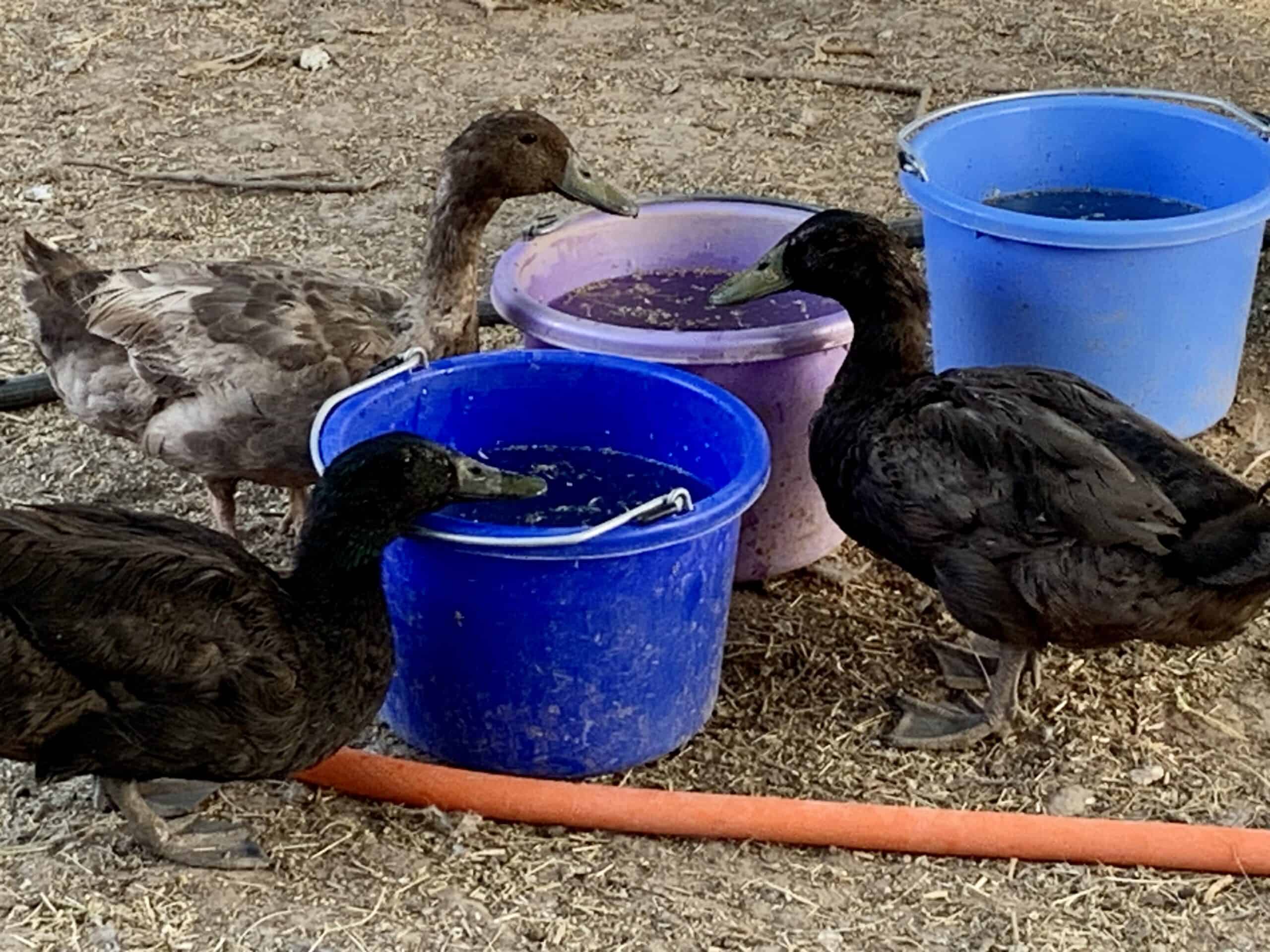When you’re focused on raising ducks, there are many things to consider. In most cases, people like having them on the property because they are entertaining and cute. However, it’s also essential to know ducks are highly unique. Most people actually believe that the process of raising a duck and chicken are the same.
While both species are similar in many ways, there are significant differences, as well. Before you decide to raise ducks in your backyard, you must understand them and their needs. That way, you can be sure this is something you want to do.
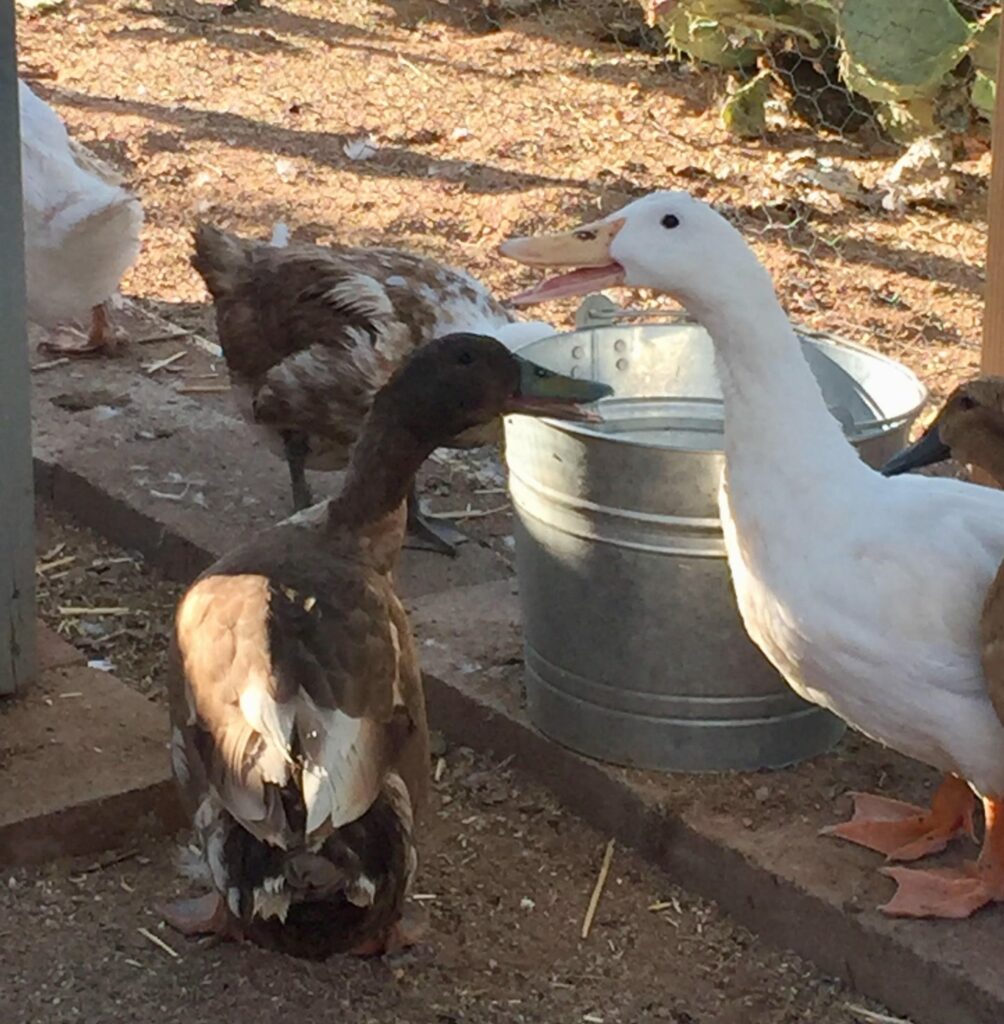
Raising Ducks
To raise ducks well, you must have an understanding of their characteristics and needs, plus the benefits of raising one and the right breeds to raise.
Characteristics of Ducks
Get to know your ducks by keeping these characteristics in mind:
Gender Differences
One minor issue is that you can’t differentiate the sex of ducks as you do many other animals. Therefore, you have to know a duck’s characteristics to ensure that you have a male and a female.
- Female ducks look like ordinary ducks, but her quacks will sound like honks and are loud.
- The male duck will have a small tail feather, which curls right at the tail’s tip, and usually, males follow the female.
When the male leads the hen, though, you will see that he bobs his head down and up in communication. He also quacks at her softly to get her where he wants the female duck to be.
While males are soft-spoken, they are also courageous. For example, if you get too close to the hen and eggs, the male duck guards her and protects her.
He won’t flog as a rooster might but will bob his head, almost like he’s trying to nudge you to get you to move away. If you don’t end up moving, he will get angry. Then, the female duck will hiss, which is a sign that you need to move away from them.
Ducks Mating Habits
The male duck or drake needs more than a single female duck or hen since they have significantly high sex drives. Literally, they could breed one female to death. In some cases, a single male duck can mate with 12 hens in one day! The most important thing when raising drakes alongside hens is to have a minimum of six females per drake.
Their mating process is a bit different than other animals, so if you see them, do not panic since it might look like he is trying to hurt her.
Also, usually, ducks like to mate in the water, so if you have that kiddie pool set up, they’re probably going to mate in it.
At times, you might see the drake push the hen’s head under the water as part of their mating ritual. During the process, the drake can pull hard on the hen’s neck. That can be very disconcerting to you, but it’s usually nothing.
If you hear the hen honking quite loudly, though, she is telling him and you that she’s being hurt and doesn’t like it. Usually, the male will stop, but if he doesn’t, you might have to intervene to protect your assets.
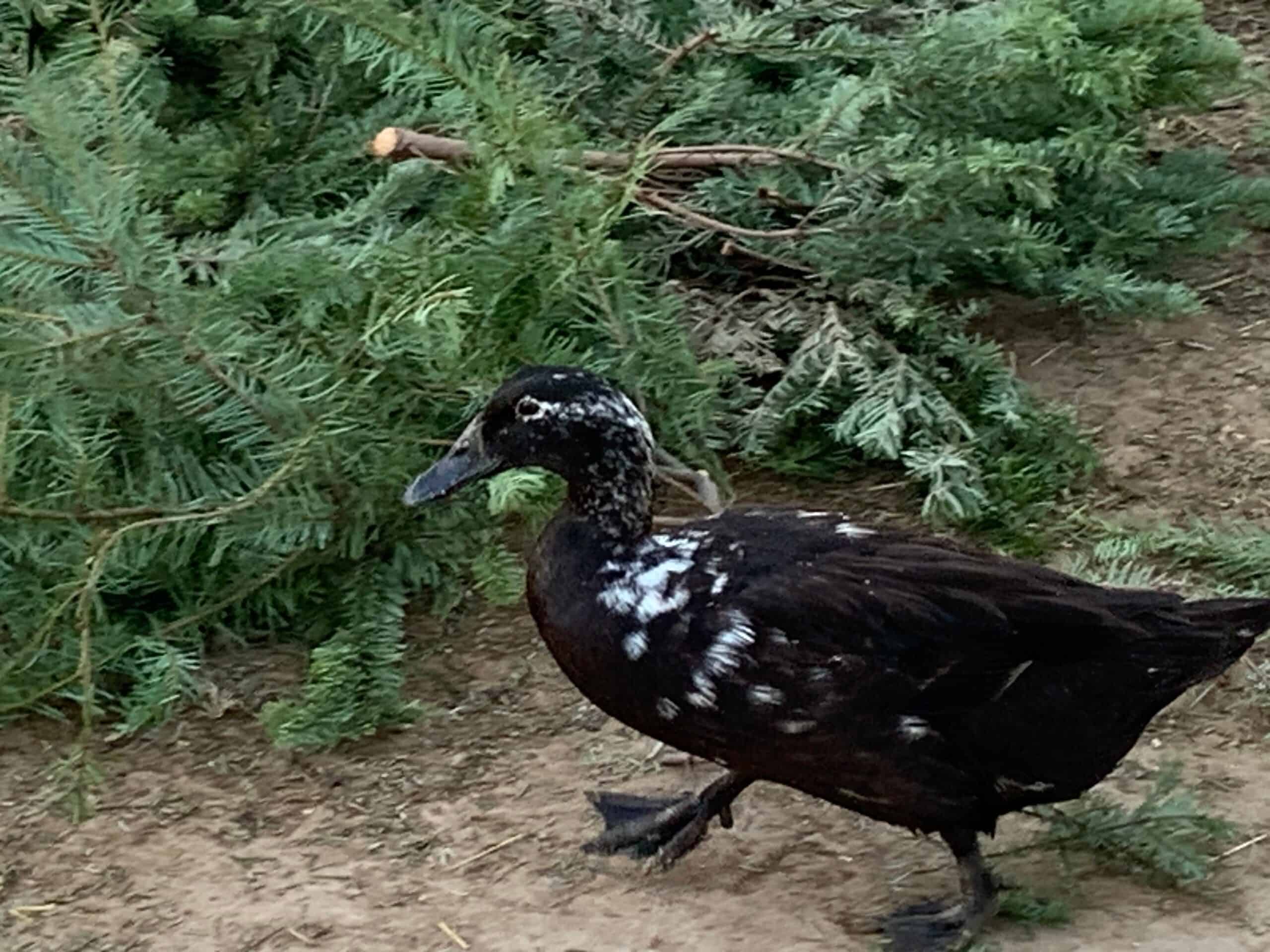
Ducks are Hardy
If you find that your drake doesn’t try to cross-breed, you won’t have an issue with them both living together. However, there is a risk of your chickens having respiratory infections, and the ducks might not get sick.
Keep in mind that chickens have a highly sensitive breathing system, and ducks don’t. Ducks aren’t vulnerable to cold weather because they’re hardier and heavier.
Why Raise Ducks
Here are the top reasons why you might want to raise ducks:
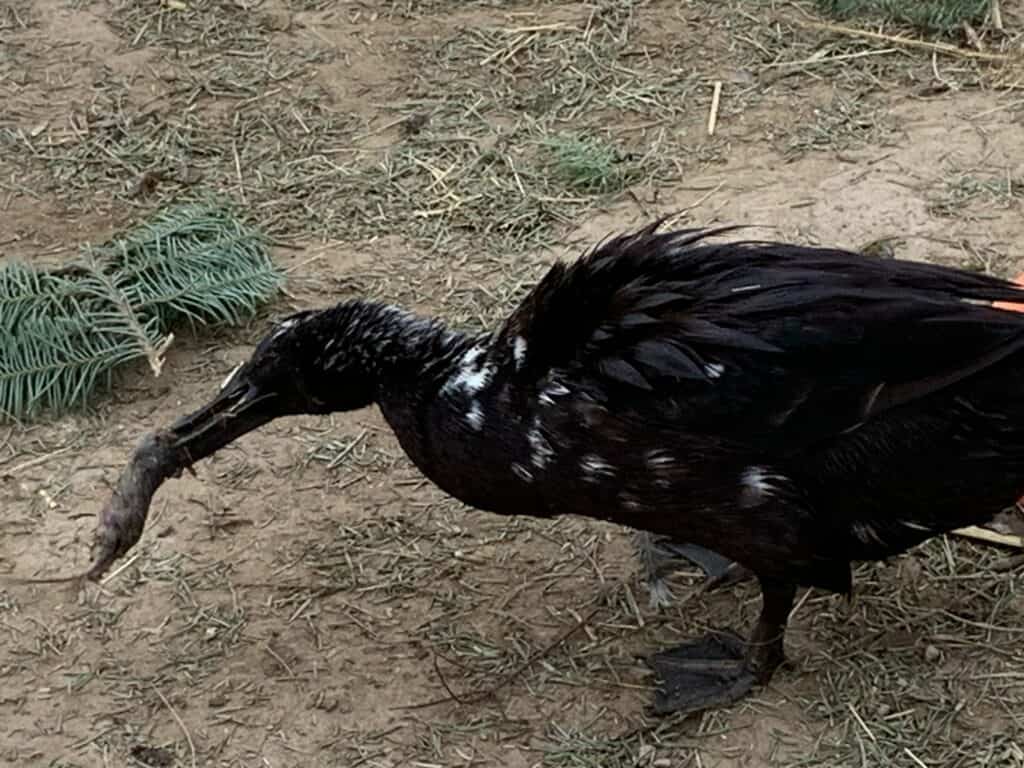
1. Ducks Help Control Pests
Ducks are your garden’s new best friend since they like to patrol the plants and search for insects that might be eating your plants. Most all ducks will enjoy foraging and can pull the insects off the plants without harming your vegetation or flowers.
They are wonderful for insect management, especially the ones who are exceptional foragers such as Indian Runner ducks. Be sure your plants are through the seedling phase before you let your ducks into the garden because they could tromp on the small plants and damage them.
In addition to helping control an insect population, ducks will help with mice and other pests.
2. Ducks are an Excellent Meat Source
If your goal is to raise animals for meat, ducks are a great addition, especially the Pekin variety. Pekin ducks have the advantage of being dual purpose so you can enjoy their eggs and then use them for meat.
In just three or four months, they can grow and be over 10 pounds each, which means you don’t have to wait long for your viable meat source. Though slow-growing, a Rouen duck will be an excellent addition for meat as well. They reach 6 – 8 pounds in that same time period.
Raising Muscovy ducks is productive and a good return on investment. A Muscovy duck is ready to slaughter in 3 – 4 months.
Ducks can also feed themselves through foraging, which makes them put on even more weight. In a sense, the process for butchering them is similar to that for chickens.
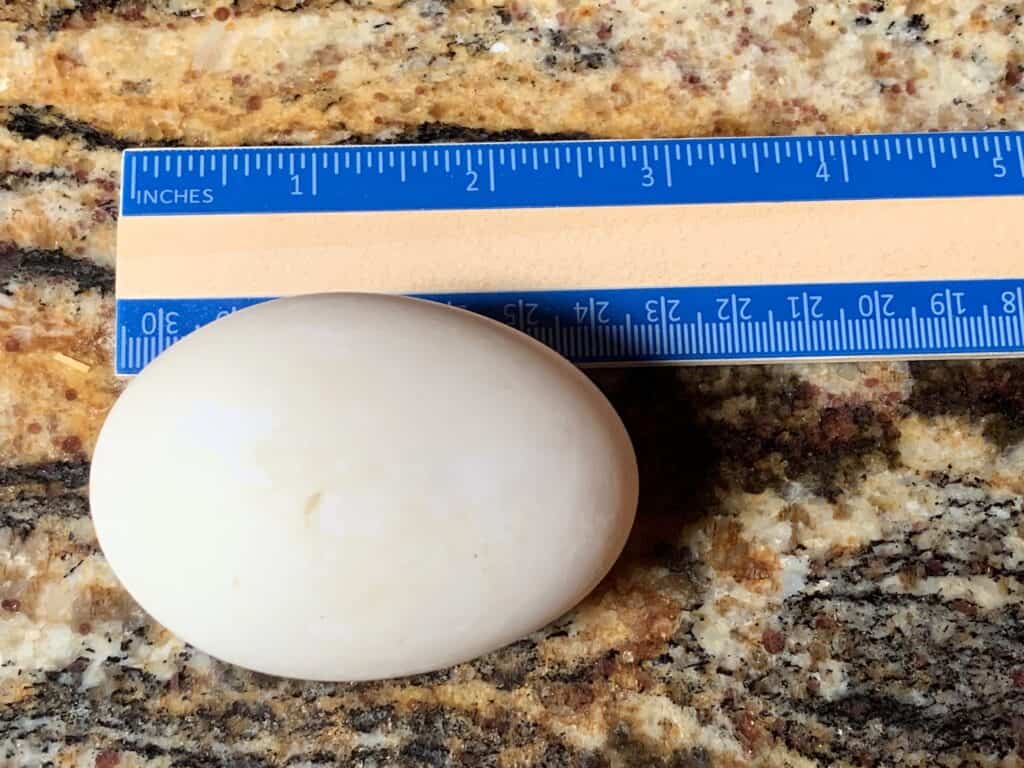
3. Ducks Provide Eggs
While delicious on their own, these jumbo sized eggs are excellent in baking.
Duck Breeds to Raise
Did you know that there are many types of ducks? Here the some of the best duck breeds to raise. It’s important to consider your purpose for raising ducks as well.
Pekins
If you are raising ducks for a meat source, you may want to choose Pekins. Pekins are one of the most recommended breeds for regular backyard ducks for many reasons. The biggest reason is they are excellent layers and a good source of meat. They lay large, white eggs.
They are large ducks, and don’t fly. They’re too heavy, around 10 pounds, to become airborne or fly south in winter. Another reason to raise this breed is that a Pekin duck will be very friendly and an excellent forager.
Generally, those who want to raise Pekin ducks for breeding need an artificial setting because Pekin hens aren’t good setters. Some hens don’t have issues with that, though. It will be dependent on the duck itself and its personality.
Khaki Campbell
If you’re looking for something different, the Khaki Campbell is another duck breed that I highly recommend. These ducks are good layers and provide large, white eggs. Hens lay 300+ eggs a year. Another great thing about Khaki Campbells is that they are good at foraging.
Aptly named, they are khaki or light tan in color, but the feet shade can vary, depending on the sex. Males tend to have orange feet, while the female feet are brown. These identifying marks can be beneficial since you can tell the different sexes apart easily.
They can be more skittish than Pekin ducks. They are a lot smaller than the Pekin and usually weigh about three pounds, but some have a limited flight option. As such, make sure that the Khaki Campbell you choose is limited when it comes to flying. Otherwise, it can be tough to keep them grounded.
Caring for Ducks and What Ducks Need
Once you’ve decided on raising ducks and have chosen the right breed, you need to make sure you provide the following to care for them properly:
Safety
If you wish to know how to raise ducks, you also have to ensure their safety. Ducks have a lot of natural enemies. Coyotes, fox, bobcats, raccoons, badgers, and other predators will prey on and attack ducks.
Older dogs and certain breeds can’t chase them for lack of energy, but many dogs can so think about that before you plan to raise and own ducks.
Usually, it is best to keep your ducks in a fenced-in part of the yard, so birds of prey, such as hawks, can’t get to them. Putting a fence around that area or having a fenced-in yard can help to keep them safe. Generally, hawks aren’t good at navigating small areas with a fence, so having a fence prevents them from swooping down, adding more protection for your ducks.
They will also need safety at night to protect them for raccoons, coyotes, bobcats, etc.
Properly Housing Ducks
Some great news is that your ducks will not need a fancy home. In fact, it seems that they are happiest with a shelter and areas to explore. Remember, ducks are waterproof and actually like to be wet most of the time. Giving them a place to live that allows for a bit of moisture and airflow is ideal for them.
Using some pallets is an excellent choice for a duck house since it gives them the shelter they need while providing moisture and airflow.
When planning how to build a duck house, you just have to ensure that it’s low to the ground so that the duck can get inside using a small ramp. If the house sits too high, they might be afraid to use it.
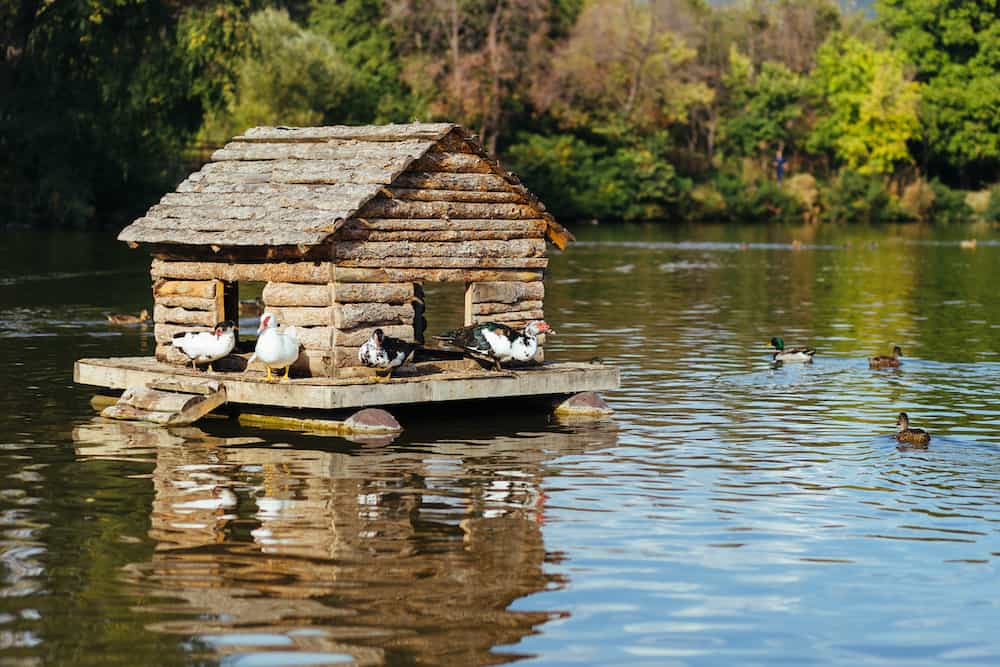
It’s possible to use a nesting box and put it in the duck house, but that’s mainly for you, so it is easier to collect eggs. You may also leave out hay since the hen can make her nest where she wants and will lay there often.
Egg Laying Habitat
When raising ducks for eggs, you really need to think about the habitat in which they live. Remember, ducks aren’t chickens. Usually, chickens don’t produce as many eggs as the days grow shorter, though they still do at times, while ducks don’t.
Each year, during winter, they go on hiatus. If you happen to have a mild winter, your hen could continue laying eggs through late December, and they often stop around November and start again at the beginning of spring.
You can also find that ducks lay eggs earlier in the day than chickens. Usually, a duck has already laid eggs by the time you wake up. In most cases, ducks also lay larger eggs and are very hardy birds in comparison to chickens. Duck Eggs vs Chicken Eggs
Water Source
You may have seen ducks in large ponds, and they do enjoy the water, but they don’t need a lot of it to be happy. They need water to drink and to dunk their heads in. Their mucous membranes require this. Often, the easiest thing to do is fill up a bucket of water, and they will be quite happy.
However, keep in mind, they are waterfowl, so to raise ducks it’s best to at least provide a small inexpensive plastic pool for them to splash in. Ducks don’t require water to swim in for survival, but if you do have a water source for swimming, use it! They’ll be happier.
What Do Ducks Eat
Ducks love eating and want a lot of food, plus they generally make a mess and can waste more than they eat if you aren’t careful. The most important thing you have to do is to keep the water and food separated. Learn more: Can Ducks Eat Chicken Feed
They love playing in water and eating, so they try to mix them both. Ducks can also forage well and eat a variety of weeds and plants. They are good for pest and insect management. Also, consider growing a fodder system because they enjoy it, and it’s quite inexpensive.
Corn is another option that they like to eat, but remember that corn is fattening to them. If you plan to use them as a meat source, limit the amount of corn you feed them.
Are Ducks Easy to Raise?
If you desire to know how to raise ducks, you will be happy that they are quite easy to handle. Often, they make it well as urban backyard ducks. As long as the ducks have plenty of water and food, you’re golden. This makes it ideal for those who want to raise animals other than cats or dogs.
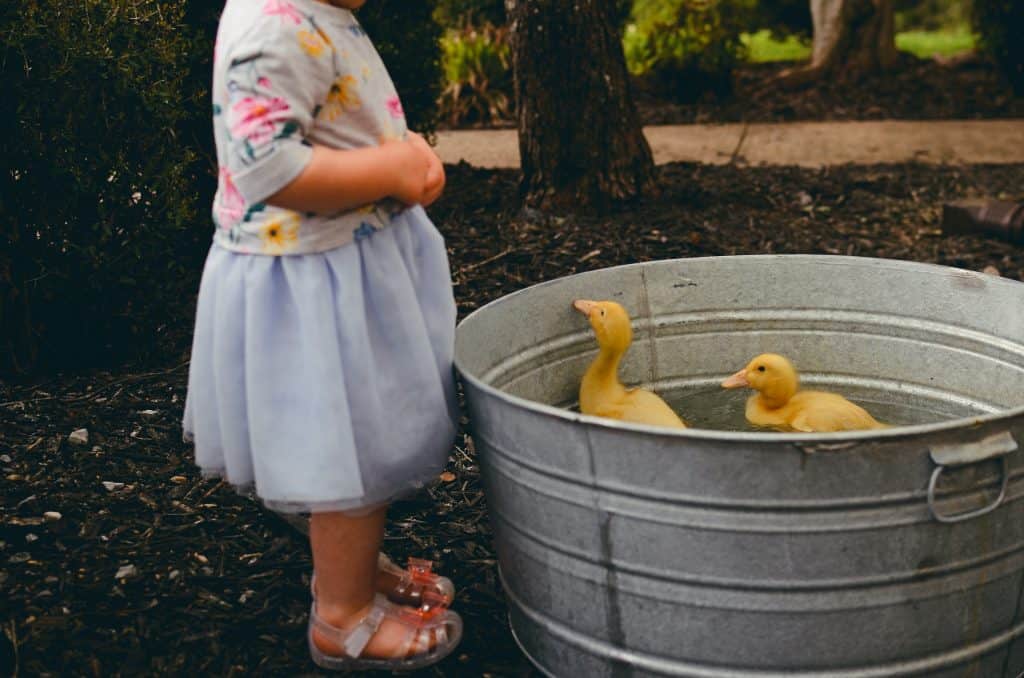
How Many Ducks Do You Need?
When raising ducks you’ll soon learn they are some of the most social creatures out there. They tend to live in a flock, so you would want multiple ducks.
Often, people want to breed them, so they start with a male and female. However, consider if you want to add a male to your flock. If you add a drake, you’ll need to raise at least six females with him.
With time, you will have baby ducks, which can grow and thrive to create a large family.
The issue with this is that drakes have a high sex drive, as mentioned earlier, so you may need up to 6 – 12 hens for a single male duck. Keep in mind that females can mate more than once a day. You just want to ensure that the drake doesn’t over-mate their companion, as it can kill the female. This applies to any duck breed.
The number of ducks you need also depends on how you plan to use them.
- If you want meat, you would need enough to have a fresh supply always.
- Those who desire duck eggs have to determine how many eggs they want each year and divide by the number of eggs a female can produce each day.
For example, a Pekin duck lays about 200 eggs a year. Let’s say that you want two dozen eggs a week, which comes to 1,248.
Divide 1,248 by 200, and you get 6.24.
You would need a total of 7 female ducks to get that much, plus you need a male if you want to breed.
Also, it’s important to remember that most duck breeds don’t lay many eggs in winter, so you have to take that into account.
Those who want ducks as a pet may just think of the eggs as icing on the cake. In this case, 3 – 4 ducks is plenty unless you want ducklings. Then, you need a male and with a larger flock of hens.
Even if you plan to keep the duck inside the house, you need at least two because they are so social and want to spend time with their own kind instead of humans.
Can You Keep Chickens and Ducks Together?
Many people raise ducks along with their chickens, mostly because of personal preference. That said, yes, chickens and ducks can coexist together, usually quite well.
If you have an exceptionally mean rooster, it is still likely to get along with the drake. There is a slight risk of raising them together, though. The rooster might try to mate the hen duck, which isn’t a significant issue.
Although the rooster doesn’t have any appendages that protrude from its body for mating purposes, the hen can perform the act to mate with the rooster.
Likewise, the drake might also try mating the hen chicken, but this can become a problem. Ducks do have appendages, and the hen chicken might not be able to handle this.
Prolapse is a possibility in chickens, and it can kill them. Therefore, before raising ducks and chickens together, each owner has to consider the pros and cons of keeping both species together.
Which Is Easier to Take Care Of?
In general, ducks are easier to take care of than chickens because they are hardier. Ducks don’t have the same illnesses and respiratory issues as chickens, which means they won’t get sick as often.
If you’re raising some ducks for eggs, you will find that the eggs are bigger and bright-white in color.
They do taste a bit different, but they are similar in stature, and you can use them for baking and eating. Plus, duck eggs offer more protein and can whip up better to create higher cakes.
Raising Ducks
It is easy to see that ducks are a great addition to your backyard family, but you should be aware that your dog or cat might not get along with them. It might be best to keep each species separated until you are sure how everyone will react to the other.
Chicken and ducks can stay together, but there are a few possible issues, which I covered earlier. As long as you know what the potential problems are and watch for possible negative signs, ducks and chickens can live together seamlessly. Sebastopol geese are not aggressive and also tend to get along with ducks on a hobby farm.
If you want to have ducks on your property, now might be the right time to do so. Check with your city or town ordinances. They are social creatures, so you would want multiple ducks at once. Raising ducks will also entertain you and the family for many years to come!
Learn more:
- What to Feed Ducklings to Meet Their Nutritional and Growth Needs
- How Long Do Fresh Eggs Last: Food Safety 101
- Which Duck Breed Is Best for Egg Production, Meat or Pet?
References:

